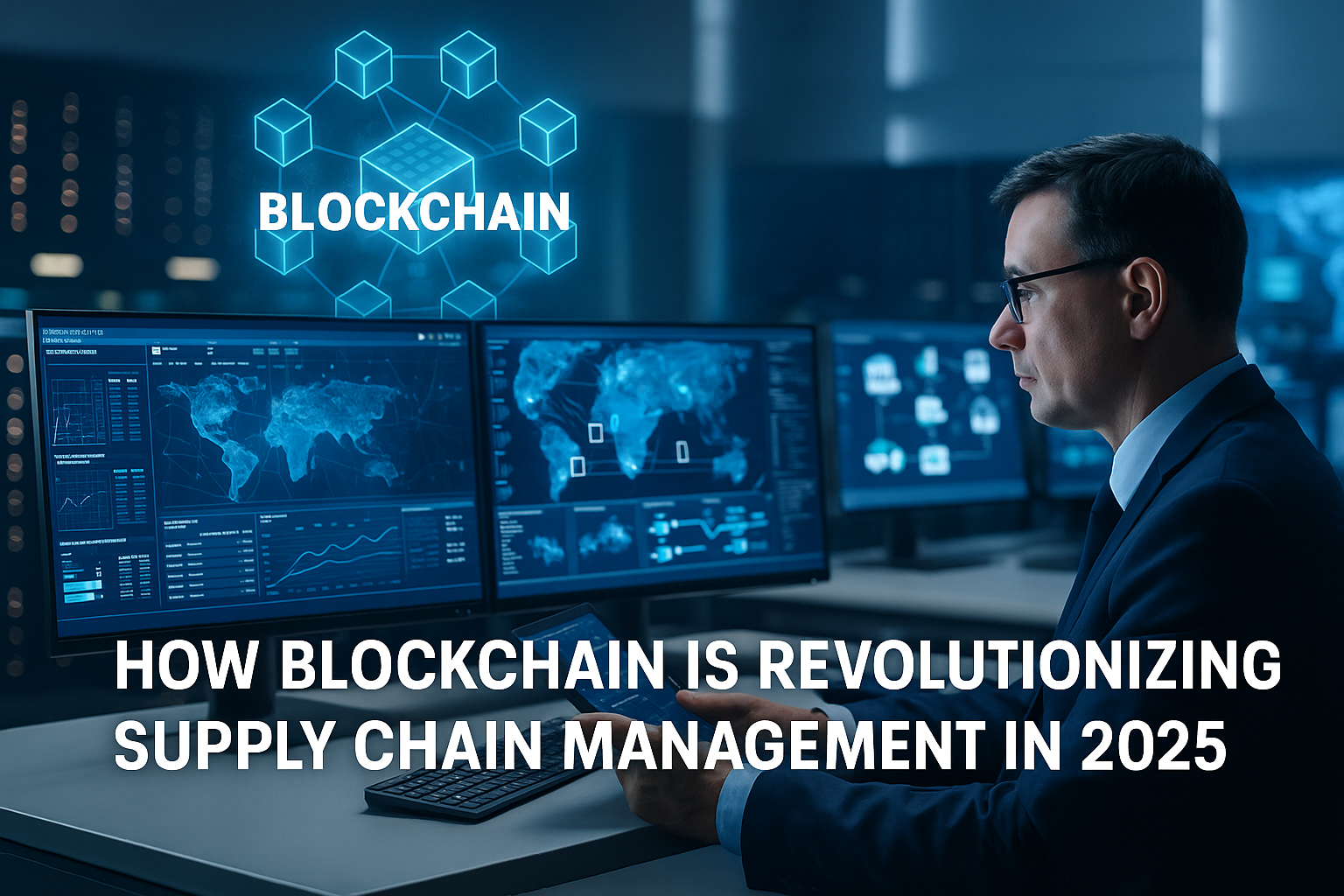What Is Blockchain Technology?
Blockchain is a decentralized digital ledger that records transactions across a network of computers. Each entry is immutable (unchangeable), timestamped, and verified by consensus. Key features include:
-
Transparency: All parties access the same verifiable data.
-
Security: Data cannot be altered without consensus.
-
Traceability: Every transaction is linked and permanent.
In the supply chain world, where tracking, trust, and timing are critical, blockchain offers a fundamental shift in how goods and data flow.
Traditional Supply Chains: Common Problems
Before blockchain, global supply chains were plagued by:
-
Lack of Visibility: Suppliers, retailers, and logistics providers often operate in silos, causing data gaps.
-
Fraud and Counterfeiting: Especially in pharmaceuticals, luxury goods, and electronics.
-
Inefficient Paper Trails: Manual processes slow down customs clearance, invoices, and certifications.
-
Traceability Gaps: It can be nearly impossible to trace a faulty product’s exact origin in real-time.
These pain points lead to waste, delays, and mistrust between stakeholders.
How Blockchain Works in Supply Chain Contexts
Blockchain addresses these issues by:
-
Creating a Single Source of Truth: All participants share a synchronized ledger.
-
Using Smart Contracts: Self-executing agreements that trigger payments or actions when conditions are met (e.g., shipment received = auto-payment).
-
Enabling Real-Time Tracking: IoT sensors feed shipment location, condition, and status directly to the blockchain.
This turns opaque, fragmented supply chains into transparent, trusted ecosystems.
15 Ways Blockchain Improves Supply Chain Management
-
End-to-End Visibility: Stakeholders can track goods from origin to destination.
-
Tamper-Proof Records: Data integrity ensures trust during audits or recalls.
-
Product Authenticity: Consumers can verify product origin and handling.
-
Automated Payments: Smart contracts eliminate manual invoicing.
-
Real-Time Monitoring: Integrates with IoT for temperature, location, and condition tracking.
-
Improved Compliance: Regulatory documents and certifications are timestamped and verifiable.
-
Supplier Verification: Ensures all vendors meet required standards.
-
Fraud Prevention: Immutable data thwarts fake transactions and identity misuse.
-
Secure Document Handling: Bills of lading, contracts, and licenses are digitized and secure.
-
Sustainability Tracking: Track carbon footprint and ethical sourcing for ESG compliance.
-
Optimized Inventory Management: Accurate data reduces overstock and understock issues.
-
Dispute Reduction: Clear records eliminate transaction disputes.
-
Better Demand Forecasting: Real-time data allows smarter analytics.
-
Cost Savings: Less paperwork, fewer middlemen, and faster logistics.
-
Enhanced Consumer Trust: QR codes on products let customers verify authenticity instantly.
Real-World Examples of Blockchain in Supply Chains
Several industry leaders have already implemented blockchain to optimize their global logistics. Here are standout examples:
-
IBM Food Trust: Used by Walmart, Nestlé, and Carrefour to trace food origins within seconds. It helps prevent food fraud, manage recalls swiftly, and ensure transparency for consumers.
-
Walmart & Produce Traceability: Walmart requires leafy green suppliers to log data on the blockchain. They reduced product origin tracing from 7 days to just 2.2 seconds.
-
Maersk & TradeLens (by IBM): The shipping giant uses blockchain to digitize global trade documents, reduce paperwork delays, and enhance port-to-port visibility.
These cases prove that blockchain isn’t just theory—it’s solving real-world logistics challenges today.
Challenges and Limitations
As transformative as blockchain is, adoption isn’t without hurdles:
-
Scalability: Public blockchains can be slow and costly at high volumes. Private chains solve this but at the cost of decentralization.
-
Integration with Legacy Systems: Existing supply chain platforms and ERP systems often require heavy customization to integrate.
-
Regulatory Uncertainty: Legal frameworks for blockchain-based documentation, especially internationally, remain unclear.
-
Data Entry Integrity: While blockchain ensures stored data is secure, it can’t verify whether that data was accurate at the point of entry (“garbage in, garbage out”).
Adoption requires technical investment, training, and cross-industry collaboration to scale effectively.
The Future of Blockchain in Logistics and Trade
As of 2025, several exciting developments are enhancing blockchain’s potential:
-
AI Integration: Artificial intelligence will predict delays or demand surges and log actions on blockchain for transparency and auditability.
-
IoT Convergence: More shipments will be tracked with sensors feeding live data directly into blockchain systems.
-
Tokenization of Assets: Digital tokens could represent containers, cargo, or warehouse slots—automating rental, use, and ownership transfer.
-
Smart Ports and Customs: Blockchain-enabled customs clearance will reduce bottlenecks and improve cross-border transparency.
The result? A faster, fairer, and more accountable supply chain system.
FAQs About Blockchain and Supply Chains
Q1: Is blockchain only for large corporations?
No. While big players are early adopters, blockchain platforms are becoming more accessible for mid-size logistics and local suppliers.Q2: How secure is blockchain for confidential supply data?
Blockchain encrypts data and uses permission-based access, making it far more secure than traditional centralized systems.Q3: Does blockchain make human workers obsolete?
Not at all. It automates repetitive data logging and verification—but human oversight remains essential for operations and strategic decisions.Q4: Can blockchain help in environmental tracking?
Yes. Many platforms now record carbon footprint, transport mileage, and ethical sourcing data to help meet sustainability goals.Q5: What industries benefit the most from blockchain logistics?
Food, pharmaceuticals, luxury goods, electronics, shipping, and any industry where traceability and trust are key.
Conclusion: Building Smarter, Safer, and More Transparent Networks
Blockchain is rewiring the nervous system of global trade. By replacing trust with verified data and paper trails with digital ledgers, it creates a supply chain that’s:
-
Faster
-
More resilient
-
More ethical
-
And profoundly more transparent
As more businesses adopt blockchain, what was once complex and costly becomes streamlined, secure, and trustworthy.
The future of supply chain management isn’t just digital—it’s decentralized, intelligent, and built on blockchain.
🔗 External Resource: IBM Blockchain for Supply Chain
-



